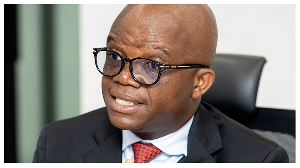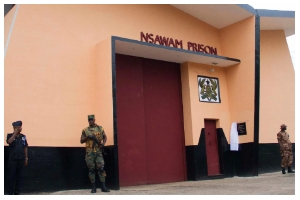The Ministry of Gender, Children and Social Protection says the Affirmative Action Bill which seeks to address gender inequalities and involve more women in the decision-making process will be placed before Parliament in 2015.
Mr John Ackon, a Deputy Gender, Children and Social Protection Minister, said women were capable of doing whatever their male counterparts were doing.
He said in order to achieve gender empowerment, all and sundry must give women the needed support to enable them to overcome challenges in the society.
Mr Ackon made the remarks on Thursday in Accra at a day’s public forum on “Media and Women’s Participation in Public Discourse in Ghana,” which was organised by the Media Foundation for West Africa (MFWA) and the Foundation for Security and Development in Africa (FOSDA) under the auspices of IBIS-in-Ghana.
The Deputy Minister urged women not to be cowed by the perception that they would be vilified in partaking in public discourses, explaining that the wider public appreciate their contributions.
“The bottom line is that you are going to succeed even though you never thought it possible,” Mr Ackon said.
Mrs Ursula Owusu-Ekuful, Member of Parliament for Ablekuma West, advised women to balance their activities so that they could apportion time for their family.
“Sometimes you have to leave you human rights at the door-post before entering the house,” she said.
Ms Dora Mawutor, MFWA Programme Officer of Communications and Research, said women’s representation in politics, governance and public life was crucial for democracy, good governance, and development.
She said the immense role of women in the development of nations had long been recognised.
“This is one of the reasons why several women’s organisations and groups continue to advocate for gender parity and the inclusiveness of women in all aspects of public life, especially in governance processes.
“Some of these interventions often require strategic multi-stakeholder approaches which include the active involvement of the media because of their agenda setting and opinion shaping capabilities.
“This makes the media effective tools for addressing gender imbalances, stereotypes, improving the visibility of women and showcasing their capabilities,” the Programme Officer said.
She said the MFWA and FOSDA, under the West Africa Human Rights and Democratisation Programme, embarked on a project titled; "Increasing Women’s Voices and Participation in Public Discourse in Ghana," with funding support from Ibis-in-Ghana.
The aim of the project has been to help increase women’s participation in public discourse, especially on radio by influencing gender policies of media and political parties in the country.
She explained that as a result, a policy guideline had been developed for the media and political parties.
The project has also been monitoring and reporting on women’s involvement and participation in public discourse on radio in particular and out of a total of 5,579 individuals who participated on programmes monitored, only 20 per cent were females and this includes moderators, panelists and callers.
According to her, this was not a good representation of women for Ghana whose population is made up of 51 per cent women.
Dr Rose Mensah-Kutin, Executive Director of Abantu for Development, called for the formation of a strong movement made up of both men and women which would spear-head the promotion of gender issues.
Mrs Dzifa Bampoe, Editor, Joy FM, said women had the apathy to take part in public discourse, and in addition restrict themselves to their comfort zones.
She further urged women to make good use of the media platform to promote their rights.
Ms Anita De-Sosoo, National Democratic Congress Women’s Organizer, advocated for the setting up of institutions to train young women to become public office holders and to be able to take part in public discourse.
Ms Otiko Djaba, New Patriotic Party Women’s Organizer, said women must be encouraged to develop crocodile skin to be able to take part in public discourse.
Ms Eva Lokko, former Director General of the Ghana Broadcasting Corporation, said the portfolio of women organisers and commissioners were being used by men as bates to silence women, she therefore, called for their abolishment.
Ms Lokko, who was the 2012 Vice Presidential candidate of the Progressive People’s Party, urged the organisers to ensure that panelists included representatives of women from the smaller parties in such events.
Regional News of Friday, 7 November 2014
Source: GNA
















